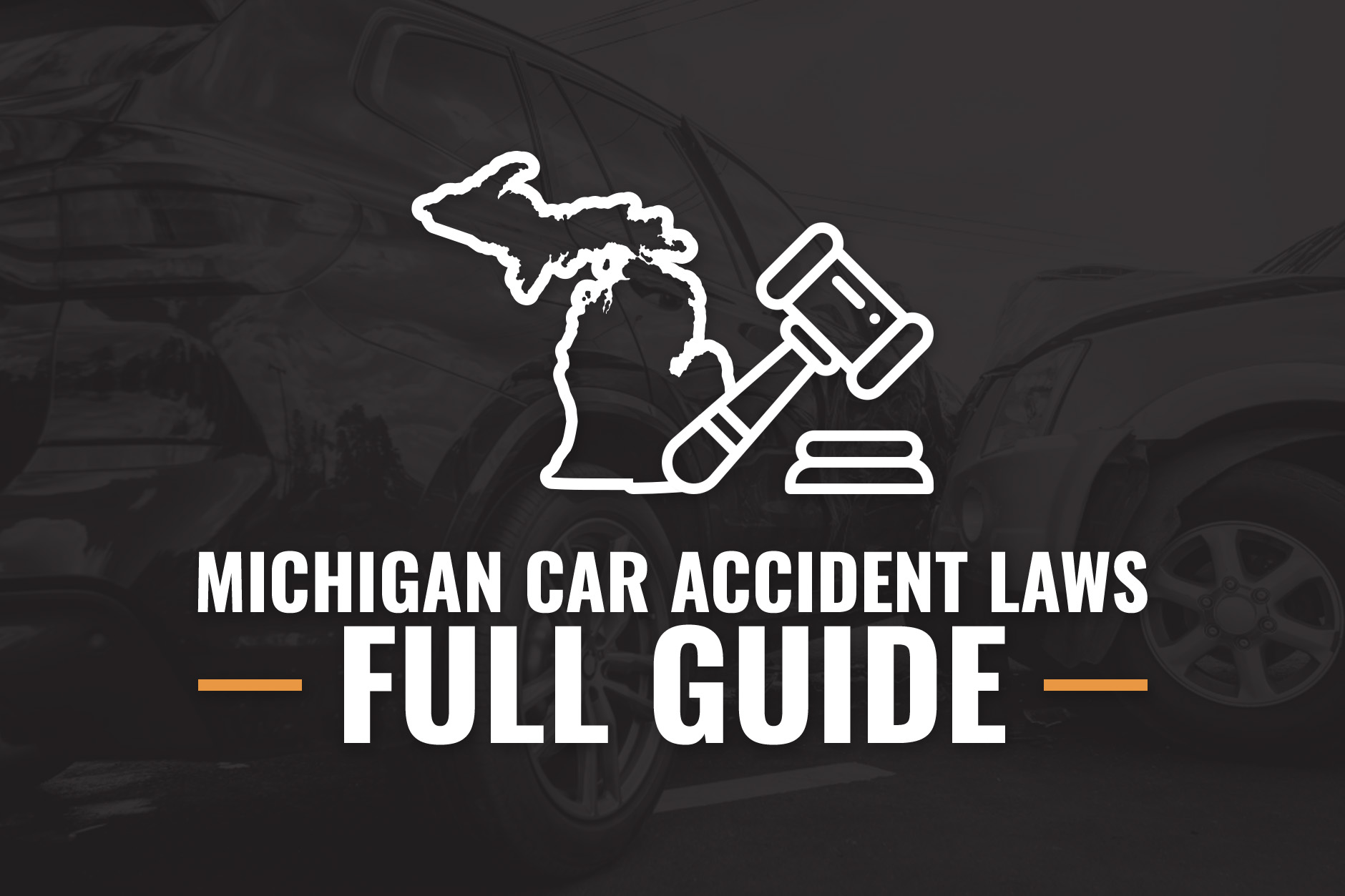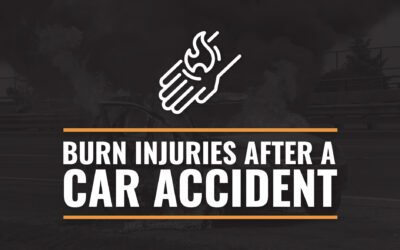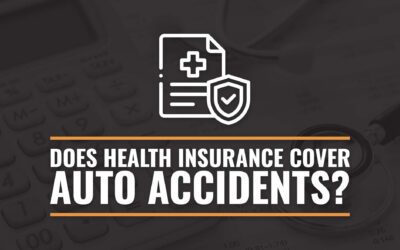
Table of Contents
Michigan’s car accident laws revolve around the state’s no-fault insurance system. Under this model, your own auto insurance company pays for your medical care, lost income, and replacement services, regardless of who caused the accident. This contrasts with fault-based states like Illinois and Ohio, where the at-fault party’s insurance is expected to cover these damages.
While a no-fault arrangement can help injured drivers and passengers get the financial and medical benefits they need without waiting for a liability decision, it also limits your recovery, which is difficult if you’ve suffered catastrophic injuries. To top it all off, insurance carriers routinely dispute claims or delay payments, leaving injured people frustrated and unsure about their rights. This guide outlines Michigan car accident laws in detail and how LegalGenius can help you take action if you’re treated unfairly.
How Michigan’s No-Fault Insurance System Works
Michigan’s no-fault insurance system requires every driver to carry Personal Injury Protection, or PIP, as part of their auto policy. If you’re injured, you’ll usually turn to your own insurer for these benefits, even if someone else was responsible.
PIP benefits pay for medical treatment, rehabilitation, and follow-up care. They also include up to 85% of your lost wages for as long as three years. If you can’t handle daily tasks like cleaning or meal prep, you may qualify for replacement services. Some policies also cover in-home attendant care to help with bathing, dressing, eating, and other personal needs after an injury.
Before 2019, Michigan’s no‑fault law required every driver to carry unlimited, lifetime PIP medical coverage. That meant your auto policy had to pay for all “reasonable and necessary” medical and attendant care, with no cap on total benefits. Today, you’re allowed to choose between different levels of PIP medical coverage, which range from unlimited coverage to caps as low as $50,000 for Medicaid-eligible drivers.
While lower premiums may look appealing, they can leave you with major out-of-pocket expenses if you’re seriously hurt. If your medical bills exceed your chosen cap, your health insurance (or your own wallet) may have to cover the rest.
When Can You Sue the At-Fault Driver?
Michigan’s no-fault system limits when you can sue another driver, but it doesn’t take that option off the table. If your injuries meet the legal threshold, you may bring what’s known as a third-party claim. To do that, you must prove that the crash caused either a serious impairment of body function, permanent disfigurement, or death. These categories are laid out in Michigan law and have been shaped over time by court rulings.
The most common path to a lawsuit is showing a serious impairment. This means an injury that affects your ability to live as you did before the accident. It doesn’t have to be permanent, but it must be more than a minor inconvenience. If your injury stops you from working, taking care of your home, driving, or participating in your usual daily life for a long time, the legal threshold may be met. Each case depends on how the injury changes your life, not just the diagnosis itself.
Once you meet the standard, you can pursue compensation from the at-fault driver for damages that aren’t paid by your no-fault benefits. They may include pain and suffering, mental distress, and lost wages that go beyond the three-year cap in your PIP coverage. If you elected for limited medical coverage and your bills exceed your policy limits, you may also seek payment for those extra costs.
What to Do After a Car Accident in Michigan
In Michigan, strict rules govern when you must report a motor vehicle accident, how you qualify for coverage, and what kind of documentation insurers expect. If you’re thinking about filing a third-party lawsuit, you’ll also need clear records that show how the crash happened, who was involved, and how the injury has affected your life. Starting that paper trail immediately gives you more control over your claim and helps your attorney build a stronger case later on.
- Call 911 and Request a Police Report: Always call the police and ask them to come to the scene. They will write a report noting key facts like the date, time, location, and names of everyone involved, and who appeared to be at fault. Without a police report, it’s harder to prove what happened.
- Exchange Information at the Scene: Get the other driver’s name, phone number, driver’s license number, license plate, and insurance details. If there are any passengers or witnesses nearby, ask for their contact information too. Having this information helps verify facts later and makes it easier for your attorney or insurer to follow up if needed.
- Take Photos and Record Evidence: Use your phone to document the crash scene before anything is moved. Take clear photos of vehicle damage, skid marks, road signs, nearby intersections, visible injuries, and the overall environment. These images can help show how the crash happened and may become evidence if fault is disputed.
- Notify Your Insurance Company Promptly: Contact your insurer as soon as possible to report what happened. Michigan’s no-fault law requires prompt notice to access PIP benefits like medical coverage and wage loss. If you wait too long, your insurer may deny parts of your claim based on late reporting.
- Seek Medical Attention Immediately: Even if you feel fine, get checked by a doctor within a day or two. Adrenaline can mask symptoms, and some injuries, like concussions or soft tissue damage, may take time to appear. Your medical records need to reflect the timing of your care and clearly connect the injury to the crash.
- Track Expenses and Document the Impact: Save all medical bills, pharmacy receipts, pay stubs, and proof of any out-of-pocket costs related to the accident. Write down how the injury has affected your ability to work, take care of your household, or participate in regular activities. This written record gives your attorney more evidence to support a third-party claim if one becomes necessary.
What If You’re Partially at Fault?
In Michigan, you can still recover compensation even if you were partly to blame for the collision. The state uses a modified comparative fault rule, which reduces your third-party damages based on your share of fault. However, if you’re found to be more than 50% at fault, you’re barred from recovering pain and suffering damages through a lawsuit.
Fault percentages are normally assigned by insurance companies, attorneys, or juries after reviewing evidence. Therefore, if you were speeding, distracted, or made a driving error just before the accident, your actions might count against you. That doesn’t mean you’re excluded from all compensation, but it can reduce what you’re able to recover in a third-party claim.
It’s important to know that fault does not affect your no-fault PIP benefits. You can still receive medical payments, wage loss coverage, and replacement services from your own insurer even if the crash was partly your fault. But when it comes to suing the other driver, the percentage of blame you carry plays a direct role in how much you can collect.
What If the Other Driver Doesn’t Have Insurance?
If you’re injured by a driver who doesn’t have insurance, you may still be able to recover third-party damages through your own policy. Many Michigan drivers carry Uninsured Motorist (UM) and Underinsured Motorist (UIM) coverage, which can help when the other driver either has no insurance or doesn’t have enough to cover your losses. These coverages apply to pain and suffering, excess medical bills, and wage loss that goes beyond what PIP provides.
Uninsured Motorist coverage applies if the at-fault driver is uninsured or flees the scene and can’t be identified. Underinsured Motorist coverage applies if the other driver has liability insurance but their limits are too low to fully compensate you. In both cases, your insurer steps in to pay the damages that would have come from the other driver in a third-party claim, up to your UM or UIM limits.
If you don’t have UM or UIM coverage, you may still qualify for limited help through the Michigan Assigned Claims Plan. This program allows you to seek basic no-fault benefits when no other policy applies. These claims involve extra steps and limited payout caps, so it’s important to act quickly and gather strong documentation of the crash, your injuries, and your expenses.
Common Issues in Michigan Car Accident Cases
Even with no-fault coverage, accident claims in Michigan don’t always go smoothly. Insurance companies may delay payments, deny valid claims, or pressure you to settle quickly.
- Medical Treatment Disputes: Insurers sometimes argue that treatment is unnecessary or unrelated to the crash. They may schedule an independent medical exam (IME) with a doctor who’s paid by the insurance company. If that doctor says you’re healed or questions your care, your benefits may be cut off.
- Wage Loss and Replacement Services Denials: Seeking wage loss benefits means proving your income with pay stubs, tax records, or employer statements. If there are any gaps in your paperwork, the insurer may delay or reject payment. Replacement services like help with cleaning or errands also require proof, such as doctor’s orders.
- Disputes Over Fault in Third-Party Claims: In a third-party lawsuit, the at-fault driver’s insurance company may argue that you were to blame. They might say your actions contributed to the crash or question the accuracy of the police report. Without strong evidence, it becomes harder to prove the other driver was responsible.
- Attempts to Downplay the Injury: Insurance adjusters may claim that your injury is minor, you had a pre-existing condition, or that your pain isn’t backed by objective test results. These arguments are common, especially in cases involving soft tissue injuries or delayed symptoms.
- Missed Deadlines or Incomplete Paperwork: Michigan’s no-fault system has strict time limits for submitting claims. If you miss a deadline or leave out key documents, the insurer may deny benefits even if your injury is valid. Keeping organized records from the start helps prevent this problem.
Time Limits for Car Accident Claims
When you’re seeking compensation after a car accident, the deadlines for filing depend on the type of claim.
- Personal Injury Protection (PIP) Claims: You must file your no-fault claim for medical bills, wage loss, and replacement services within one year of the date the service was provided. This rule applies to each expense individually. If you submit a bill after the one-year mark, your insurer can legally deny it.
- Third-Party Injury Lawsuits: If your injuries meet the legal threshold, you have three years from the date of the crash to file a lawsuit against the at-fault driver. Once that deadline passes, you generally can’t pursue these damages.
- Vehicle and Property Damage Claims: Most property damage claims also fall under the three-year limit. If you’re using the mini-tort rule to seek up to $3,000 from the at-fault driver, you must do so within that timeframe. The same applies to lawsuits for full repair costs if you’re pursuing a separate claim beyond the mini-tort cap.
- Wrongful Death Claims: If the crash resulted in a fatality, the surviving family has three years from the date of death to file a wrongful death lawsuit. This claim may include funeral costs, loss of income, and loss of companionship.
How LegalGenius Helps Car Accident Victims
At LegalGenius, we’ve handled a wide range of car accident cases and secured millions in compensation. When you call us, we listen to you, help you understand your options, and take the pressure off dealing with insurers.
- Investigating the Collision: We gather police reports, accident scene photos, witness statements, and traffic data to understand how the crash happened. If fault is disputed, this evidence helps us push back against the other driver’s insurer.
- Handling Insurance Disputes: If your no-fault benefits are delayed, reduced, or denied, we step in to challenge the decision. That includes fighting back against biased medical exams or incomplete reviews. You shouldn’t have to fight your own insurer while recovering from an injury.
- Calculating and Documenting Losses: We help you track medical bills, wage loss, and the impact your injury has had on daily life. This documentation makes your claim stronger and helps us seek the full amount you’re owed. Without detailed records, insurance companies tend to undervalue claims.
- Negotiating a Fair Settlement: Once we’ve built a strong case, we negotiate directly with the insurance adjuster or opposing counsel. We prepare each case as if it might go to court, which usually leads to better settlement offers.
- Going to Court if Needed: If a fair settlement isn’t possible, we’re prepared to take your case to trial. We use medical records, expert testimony, and clear evidence of fault to present your case. While most claims settle, being trial-ready gives you more leverage.
Speak to a Michigan Car Accident Attorney Today
Michigan’s no-fault insurance system gives you access to benefits after an accident, but it also limits when and how you can sue the at-fault driver. Understanding what your policy covers, when to file a claim, and how fault affects your case can help you avoid delays and protect your right to compensation.
If you’ve been injured in a Michigan car accident, LegalGenius can help you file your claim. Our team has recovered millions for accident victims statewide, and we’re ready to help you, too. To learn more or schedule a no-obligation consultation, fill out our Ask the Genius™ form or call 1-800-209-4000 today.

Attorney Jeffrey Perlman
Attorney Jeffrey Perlamn is the managing partner at LegalGenius, PLLC. He has helped Metro Detroit accident victims recover the compensation they deserve for over 35 years. He believes everyone should have access to justice and the legal system, which is why Attorney Perlman spends his time outside of the courtroom writing informational blogs on the LegalGenius website that are accessible to all.


